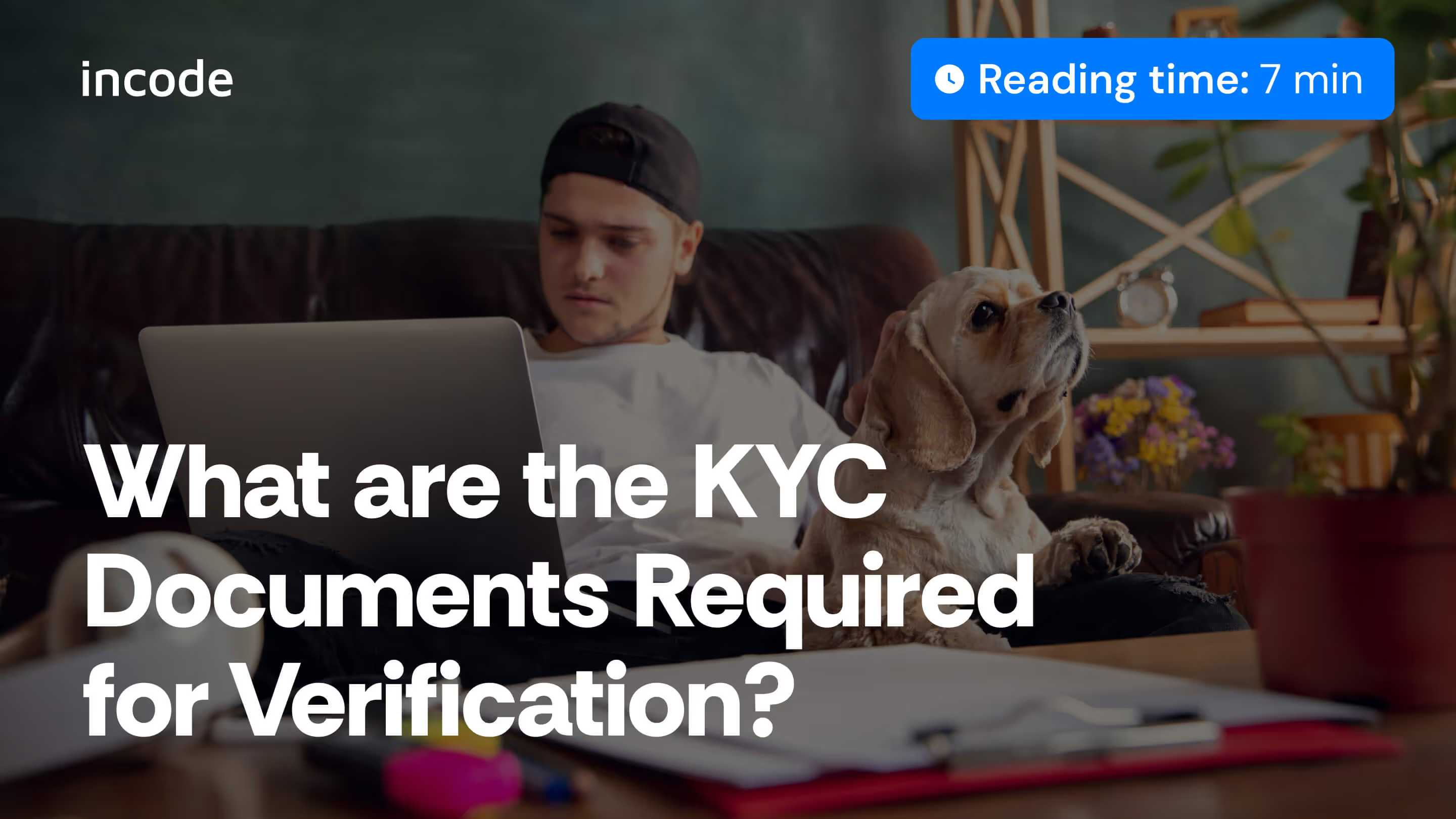Understanding KYC Documents for Effective Verification


To identify customers, businesses use Know Your Customer (KYC) verification. In both the financial services industry and other specific industries, this is a crucial step in protecting customers. By verifying a customer’s identity through KYC documents, companies ensure they are dealing with legitimate clients and comply with regulatory requirements. When implemented, KYC practices help build trust with customers and protect businesses from legal and financial risks.
KYC documents are the pieces of identification used by businesses to confirm their customer’s identity. This is a mandatory step when customers are onboarding to your product or service, as it helps prevent discrepancies in identity and fraud.
There are different types of KYC documents for different regulatory requirements. Here are common types:
Primary identification documents are the most common forms of identification that can be found. They include:
Proof of address documents help confirm a customer’s residential address. Chances are, you’ve been asked to show proof of address before. Thankfully there are a few different forms, in case you have difficulty providing one, there is always a backup option! Common examples include:
There are also times when you need to provide more specific identification documents. These include:
Providing KYC documents allows businesses to detect suspicious activities by properly identifying customers who are less likely to engage in illegal activities, and suspicious transactions can be flagged more easily. While also preventing fraud by ensuring that customers are who they claim to be reduces the risk of fraudulent activities and identity theft.
Without the KYC documentation, businesses cannot onboard customers and their information safely. Consequences can go as far as money laundering, where it is easier to move money between people when identities are not accurate.
KYC documents are also crucial for meeting regulatory requirements set by global standards. These include:
The Know Your Customer compliance process involves collecting and verifying customer information to ensure adherence to regulatory requirements. To gain a deeper understanding of KYC and its role in preventing financial crimes, you can read more in our detailed blog post here.
KYC (Know Your Customer) requirements can vary depending on the type of customer. Different groups have specific documentation needs to ensure compliance and accurate verification. Here’s a guide to the KYC document requirements for various groups:
Individuals
For most individuals, standard KYC documents include:
These documents help verify both the identity and residence of the individual, ensuring accurate and comprehensive verification.
Minors
For minors, additional documentation may be required:
These requirements ensure that the minor’s account is managed by an authorized guardian, protecting both the minor and the institution.
Non-Residents
Non-residents may have specific KYC requirements, including:
These documents help institutions verify the identity and address of non-resident customers while complying with international regulations.
Small Account Holders
For accounts with limited transactions, such as small savings accounts, the KYC requirements might be simplified:
eKYC, or electronic Know Your Customer, is a modern approach to the traditional KYC process that leverages technology for quicker and more efficient verification. It involves using digital methods to verify the identity of customers, replacing or supplementing traditional paper-based processes. Here’s an overview of eKYC and its advantages:
Benefits of eKYC in Streamlining the Verification Process
Use of Biometric and Digital Identity Verification Systems
eKYC often incorporates biometric and digital identity verification technologies:
KYC (Know Your Customer) due diligence is a critical aspect of regulatory compliance and risk management. Here’s why KYC due diligence is crucial:
Customer Due Diligence (CDD) is the process of verifying the identity of customers and understanding their financial activities. This step is essential for:
KYC is an integral part of CDD, requiring businesses to collect and verify personal information such as ID cards and addresses to confirm the legitimacy of their customers.
Enhanced Due Diligence (EDD) is a more rigorous process applied to high-risk customers who pose greater potential for illicit activities. It includes:
KYC (Know Your Customer) documents are essential for verifying customer identities, preventing financial crimes, and ensuring regulatory compliance. Proper eKYC processes help businesses avoid legal issues, enhance security, and build trust with customers. With stringent requirements and varying standards globally, maintaining compliance is crucial for any organization handling sensitive financial information.
Incode’s verification solution offers a streamlined approach to KYC compliance. Our advanced technology simplifies the collection, verification, and management of KYC documents, ensuring that your business meets all regulatory requirements efficiently. By leveraging our solution, you can enhance your compliance processes, reduce operational costs, and protect against potential risks.
Stay ahead in regulatory compliance with Incode’s advanced verification solutions. Contact us today to learn how we can help you streamline your KYC processes and safeguard your business.